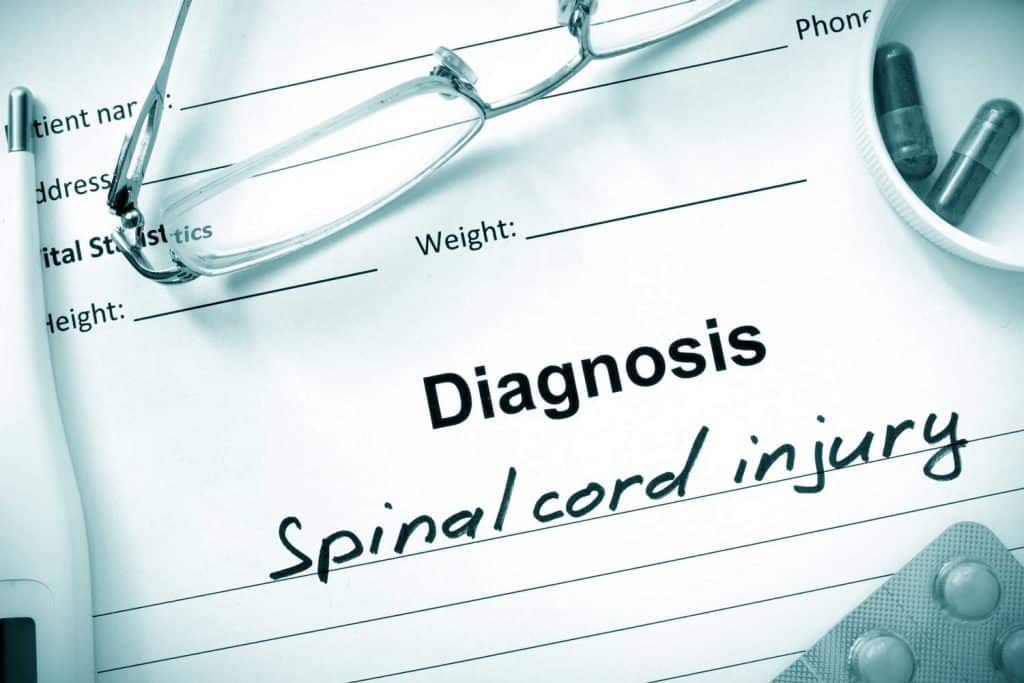
A spinal cord injury occurs when the nerves towards the spinal canal’s end or any part of the spinal cord are damaged. It causes permanent changes to sensation, strength, and other body functions. If anyone you know has sustained a spinal cord injury, you might feel that every aspect of their life has been impacted.
A spinal cord injury affects people socially, emotionally, and mentally. However, scientists are optimistic about the future and believe that the advances in research will repair the damage caused by spinal cord injuries one day.
In the meantime, spinal cord injury patients will be unable to continue living an independent life and will need the help of others.
Symptoms
The following are some of the symptoms of a spinal cord injury.
- Changes in fertility, sexual sensitivity, and sexual functioning.
- Spasms and exaggerated reflex activities.
- Bladder control issues or loss of bowel control.
- Altered or loss of sensation such as the ability to touch and feel cold or heat.
- Loss of movement.
- Difficulty breathing.
- Intense pain around the spinal cord.

Causes of spinal cord injury
In the simplest of words, a spinal cord injury might result from damage to the spinal cord itself or to the disks, ligaments, or vertebrae of the spinal column. A serious spinal cord injury might be caused by a traumatic, sudden blow to the spine which ends up compressing, crushing, dislocating, or fracturing the vertebrae.
It could even result from a knife wound or gunshot that penetrates deep into the spinal cord and cuts it. Additional damage is caused over a period of dew days or weeks due to the fluid accumulation, inflammation, swelling, and bleeding around the spinal cord.
Non-traumatic spinal cord injuries might be caused by disk degeneration, infections, inflammation, cancer, or arthritis. A spinal cord injury damages the nerve fibers that pass through the injured region. Thus, it ends up impairing part of the corresponding nerves and muscles.
Some of the most common causes of a spinal cord injury are mentioned below.
Motor vehicle accident
These are some of the main causes of spinal cord injury. In an Australian study, about 1,146 people were killed in motor vehicle accidents as reported in October 2019. That’s over three people a day. As motor vehicle accidents occur mostly in the country, it’s the number one reason for spinal cord injury.
Falls
A fall from a significant height, especially in your back, will cause spinal cord injury. Moreover, if you fall, after the age of 65, the chances of having it are very high. Slips and accidents account a lot for most spinal cord injuries and often are at home or in the workplace.
Injuries and violent encounters
A violent encounter where one suffers from a knife wound is likely to experience spinal cord injury. This often accounts for 13% of reported cases mostly involving gunshot incidents. About 206 deaths and thousands more were reported from 2018 alone.
Sports injuries
Athletic activities are known to cause spinal cord injuries such as diving in shallow water and impact sports. According to the CBHS Health Fund, around 30,000 Australian athletes are sent yearly in hospitals, whereas an estimate of $2 billion is spent treating injured athletes.
Alcohol
One-fourth of spinal cord injuries in Australia are caused by alcohol dosage. Drinking in huge amounts may cause health problems, accidents, and injuries that create a greater risk for spinal cord injuries. Alcohol abuse weakens your immune system as well, thus, opening up to more infections and diseases.
Diseases
Inflammation around the spinal cord, osteoporosis, arthritis, and cancer may also cause a spinal cord injury. Non-traumatic or non-injury spinal cord problems may not be as prevalent as the former examples. However, they gradually deteriorate your system – thus, needing a call for the doctor pronto.

On-going care
There is no treatment that can help reverse the damage caused by a spinal cord injury. However, researchers are striving to find new treatments such as medications and prostheses which improve the functioning of the nerves and promote nerve cell regeneration. Thus, preventive care is provided to spinal cord injury patients.
To maintain spinal cord injury, you can also do the following:
Get an adjustable bed
About 4 million Australians suffer from body pain due to medical conditions, exerted activities, or bad mattresses or bed frames. However, with adjustable beds, you decrease the stress on your body by distributing weight evenly on the mattress.
Try elevating your feet to reduce to lower back strain. This allows your spine to relax accordingly. What’s more, if you use a foam mattress, it boosts natural body contouring to pressure points.
Rehabilitation support
Invest in programs or health services and rehabilitation support for on-going care. This includes physical therapy, psychologist, dietitian, or physiatrist for spinal cord injuries.
The support usually emphasizes on strengthening muscle functions, coordination, and motor skills, or reintegration day-to-day tasks. Oftentimes, you’ll use equipment to help you resume your everyday life such as wheelchairs, electronic aids, stimulation devices, and gait training.
Medication and pain killers
Medications may be prescribed to manage the symptoms and pains of spinal cord injury. There are medications to lessen pain, improve sexual functions, or control spasms.
Ask your doctor if there are any side effects upon taking medications.



